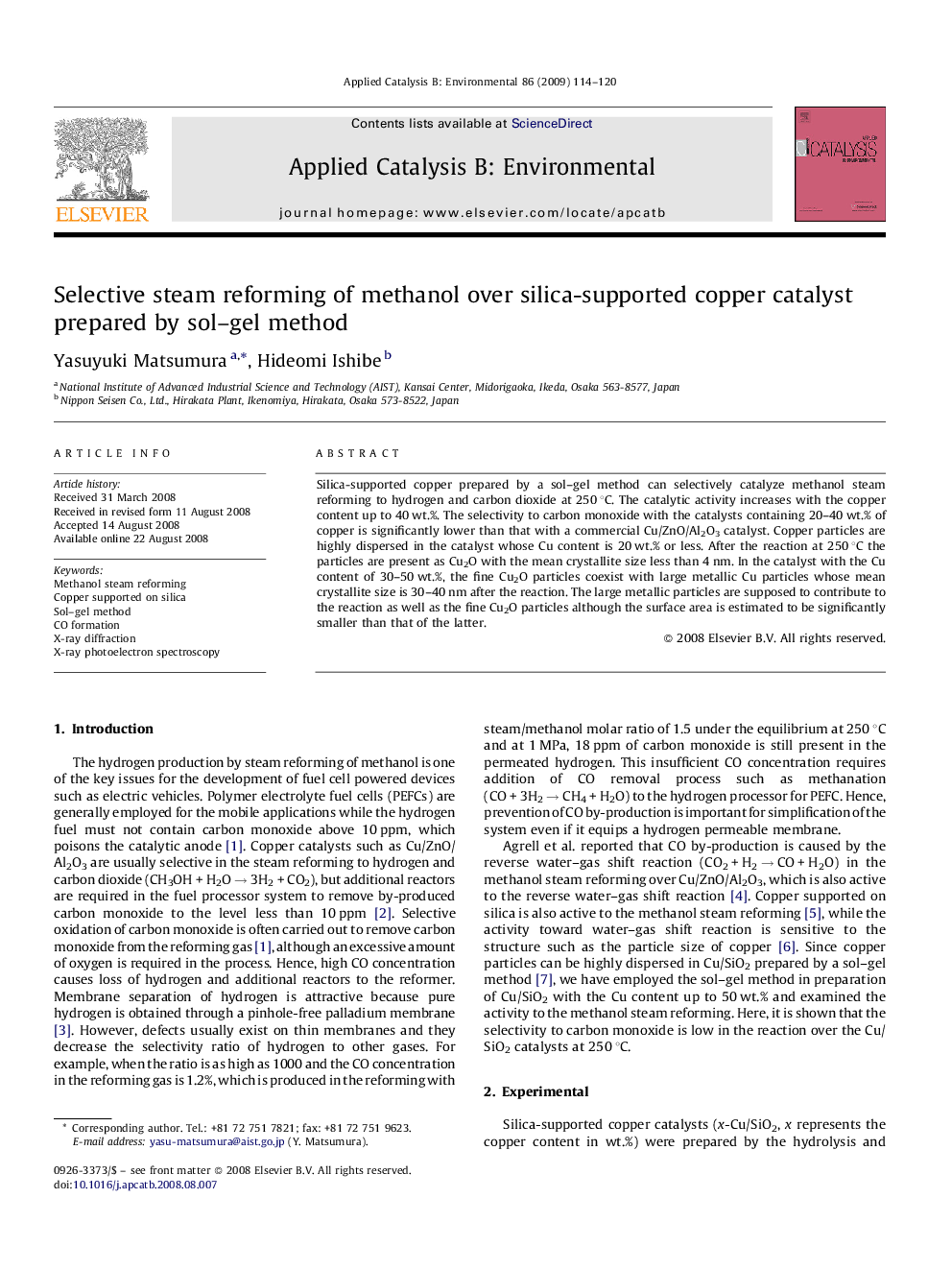| Article ID | Journal | Published Year | Pages | File Type |
|---|---|---|---|---|
| 47870 | Applied Catalysis B: Environmental | 2009 | 7 Pages |
Silica-supported copper prepared by a sol–gel method can selectively catalyze methanol steam reforming to hydrogen and carbon dioxide at 250 °C. The catalytic activity increases with the copper content up to 40 wt.%. The selectivity to carbon monoxide with the catalysts containing 20–40 wt.% of copper is significantly lower than that with a commercial Cu/ZnO/Al2O3 catalyst. Copper particles are highly dispersed in the catalyst whose Cu content is 20 wt.% or less. After the reaction at 250 °C the particles are present as Cu2O with the mean crystallite size less than 4 nm. In the catalyst with the Cu content of 30–50 wt.%, the fine Cu2O particles coexist with large metallic Cu particles whose mean crystallite size is 30–40 nm after the reaction. The large metallic particles are supposed to contribute to the reaction as well as the fine Cu2O particles although the surface area is estimated to be significantly smaller than that of the latter.
